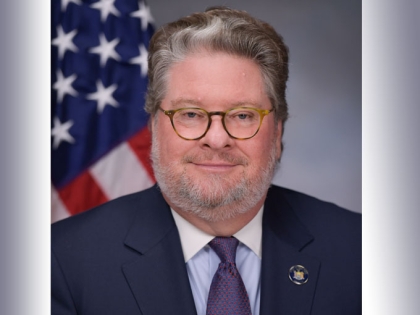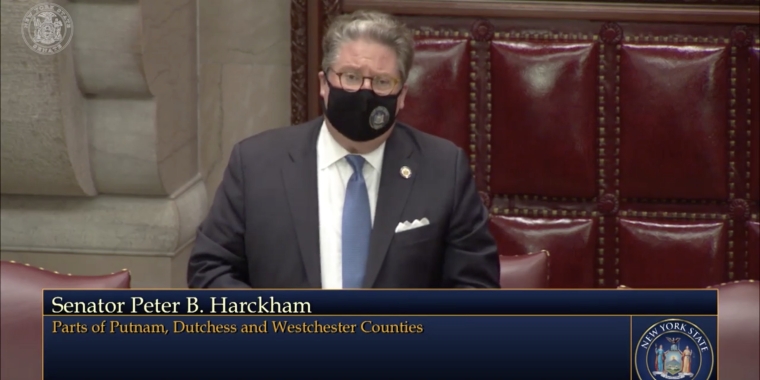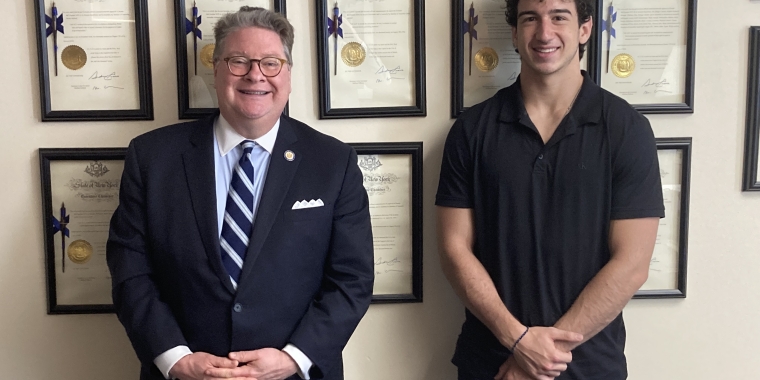
Harckham Bill to Curb Punitive OMIG Audits of Drug Treatment Providers Passes in Senate

Albany, NY – New York State Senator Pete Harckham and his Senate colleagues unanimously approved an important bill (S.4486A) today that guarantees due process protections to Substance Use Disorder (SUD) treatment providers when being audited by the state’s Office of the Medicaid Inspector General (OMIG). The legislation became necessary because a number of treatment and health care providers have faced onerous fines after audits uncovered no fraud or abuse but small clerical errors.
“New York patients cannot afford to lose any more drug treatment providers, especially over unintentional administrative errors,” said Harckham. “The senseless undermining of Substance Use Disorder programs in the middle of an opioid epidemic needs to stop. This legislation will ensure necessary safeguards are in place when it comes time for state audits of community-based drug treatment and behavioral health clinics working with Medicaid recipients. Let’s not lose sight that these programs save lives, so regulatory efforts should be in line with supporting and improving services, not crippling them.”
When the OMIG was created in 2007, the emphasis of the State Legislature and the concern of the public was on fraud and waste in the Medicaid system. But recent experiences with the law have made it clear that the current statute is missing key provisions necessary to assure fairness and procedural clarity for all the parties involved, including the personnel of the OMIG.
In treating SUD patients with opioid addictions, treatment providers utilize federally regulated medications, such as methadone. The OMIG lumps in-person medication administration visits with other services, and excessively high fines are levied when inconsistencies are identified.
Recently, one treatment provider was fined $7.7 million for 12 clerical errors valued at $400. No fraud or abuse was alleged or found, but OMIG’s extrapolation of these errors has forced this provider to close its operations and end treatment for 1,500 patients. A similar situation is playing out in Western New York, with several more audits in the pipeline.
OMIG audits that punish providers for technical errors, not fraud, do not help anyone in the Medicaid system, especially when those errors are the result of contradictory guidance provided by different state agencies. Furthermore, the OMIG’s practice of extrapolating millions of dollars of claims from a small sample of technical errors has been forcing already-stretched-thin health care providers, especially in the behavioral health system, to close, which ultimately harms patients.
This bill also addresses due process for Medicaid beneficiaries who deserve advance notice of any investigations and details about what exactly is being investigated. They also deserve to know their rights before the OMIG makes any recoveries or enforcement actions against them. These common-sense requirements are necessary to protect vulnerable New Yorkers from overzealous OMIG actions.
“Our job is to provide effective and efficient services in a manner that is consistent with all relevant laws and regulations, and OMIG’s job is to root out fraud and abuse wherever it finds it,” wrote Ann-Marie Foster, president and CEO of Phoenix Houses / New York and Long Island, in a letter of support of the legislation. “However, this does not mean OMIG should have the ability to wipe our whole programs and / or services based on technical errors when the service was delivered appropriately. Phoenix Houses of New York and Long Island strongly supports this bill and believes that there is a need to partner with OMIG in order to preserve treatment services in New York.”
“COMPA thanks the bill sponsors Senator Pete Harckham and Assemblymember Richard Gottfried for introducing this important legislation,” said Allegra Schorr, president of the Coalition of Medication-Assisted Treatment Providers and Advocates (COMPA). “We think this is a significant step forward. Opioid Treatment Programs are essential providers in battling the rising rate of overdose deaths and access to these services is paramount.”



